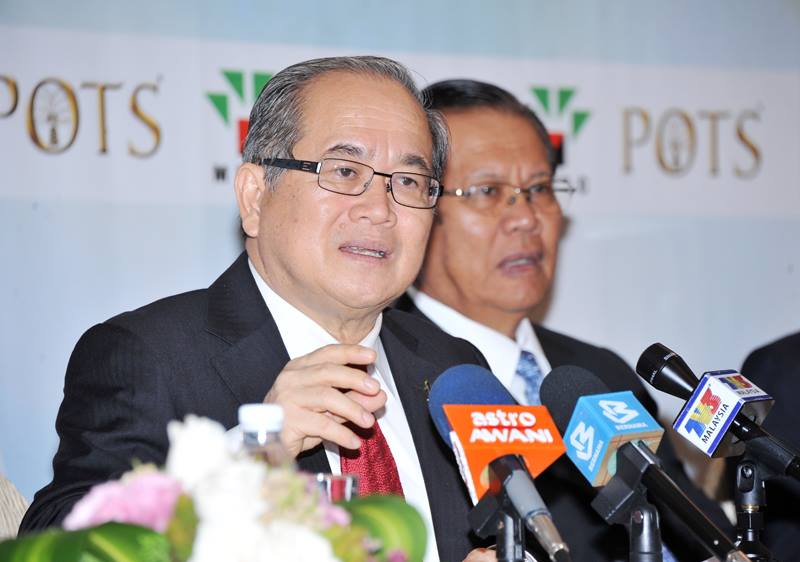KUALA LUMPUR, July 21 — Sarawak authorities today reported 11 new Covid-19 cases in the state, comprising seven in Kuching, two in Samarahan, one in Bau, and one in Lundu.
The Ministry of Health (MOH) also announced one new cluster dubbed Sentosa at a hospital in the Sarawak state capital of Kuching, identifying six Covid-19 patients so far that comprise five health care workers and a worker from a cleaning factory. All patients are being treated at Sarawak General Hospital.
The first case of this cluster was a health worker who experienced respiratory tract symptoms on July 13 and tested positive for Covid-19 on July 19. As of today, 61 people have been screened and the cause of the infection is still being investigated.
An imported case reported in Sarawak today involved a local citizen who returned from the Netherlands on July 15 and had flown to Malaysia through Doha, according to the Sarawak Disaster Management Committee (SDMC).
The patient arrived at the Kuala Lumpur International Airport (KLIA) via Qatar Airway and spent the night at KLIA, before flying to Kuching on July 17.
SDMC said the person, who did not display symptoms, tested negative for the coronavirus at KLIA with the antigen rapid test kit (RTK) on July 16, but later tested positive through the swab rT-PCR test in Sarawak on July 20 after getting swabbed on July 19.
This case represents the 10th reported false negative result from the antigen RTK at the airport, including seven who eventually tested positive with the gold-standard PCR test in Sarawak. Bintulu MP Tiong King Sing told Parliament earlier today that MOH should stop using the antigen rapid tests in light of inaccurate results.
Another two new cases in Sarawak involved two Indonesians who entered Sarawak to work on a construction site in Lundu District and a housing construction site in Samarahan. Both of them also did not show any symptoms of Covid-19 until they were found to be infected by the coronavirus.
One case from the Kuching Medical Centre cluster, a case from the Stutong market cluster, and one case from self-screening were newly detected in Sarawak. Five new cases were detected through contact tracing activities. All of them were close contacts of Patient 602 (Sarawak’s patient number).
All of the 11 new Covid-19 patients from Sarawak showed no symptoms of the disease.
So far, a total of 53 construction sites have been identified in Miri and 602 samples were taken for rT-PCR testing. Of that, 425 samples belong to local workers and 177 belong to foreign workers from Indonesia, Bangladesh and the Philippines. Of the total rT-PCR samples (602), 596 samples tested negative.
“The recent Covid-19 situation is worrying as the number of daily reported cases continues to increase, especially local transmissions in the country,” said Health director general Dr Noor Hisham Abdullah in a press meet today.
“Therefore, MOH welcomes the decision of the ministers taken in a special meeting on the implementation of the Movement Control Order, which has been announced by the Senior Defence Minister, to implement mandatory 14 days’ quarantine for foreign returnees and Malaysian citizens in designated quarantine centres from July 24,” he added.
Previously, the number of active cases decreased to 63 on July 9, but saw an increase later to 130 today. So far, MOH has recorded a total of 8,815 cases in the country.
Of the 15 newly reported cases nationwide today, four were imported cases from the Netherlands, Saudi Arabia, United Kingdom and Indonesia, while 11 comprised local transmissions (10 Malaysians and one foreigner entering the Semuja immigration detention depot in Sarawak). Of the 10 Malaysians, eight were from Sarawak, one in Selangor (severe acute respiratory infection case), and one in Sabah (influenza-like illness case).
Today, seven Covid-19 patients were discharged from hospital, while four patients are in the intensive care unit, with one under ventilator support.
As of today, the country recorded 19 active coronavirus clusters, of which 13 were announced in the past 10 days. It is to be noted that eight of the 19 active clusters were detected in Sarawak: Sentosa (Kuching), Kuching Medical Centre (Kuching), Stutong (Kuching), Kuching construction centre (Kuching), Kuching Jetty (Kuching), Kuching engineering (Kuching), Jupiter (Bintulu), and Mambong (Samarahan and Kuching).
According to Dr Noor Hisham, nine of the 13 new Covid-19 clusters were local transmissions. Three others were sparked from imported cases (Novgorod, Shirala and Pitakwa), while the Jupiter cluster is considered isolated as it is in a docked ship.
“MOH is very worried that people are not giving attention to the importance of protecting the elderly from Covid-19 infection. The public should practice prevention measures especially wearing a mask half face, hand hygienic measures as well as maintaining social distance,” the Health DG mentioned.
The new cluster in an aged home in Kluang, Johor, which was identified yesterday, comprised 11 elderly residents, one worker, and one family member, while one resident died.
The DG emphasised the role of every individual to take responsibility for the safety of family, community and country in order to protect the health of the elderly.
MOH also highlighted the importance of wearing a face mask properly as a preventive measure by covering the nasal passages up to the chin.
“Improper usage of masks by letting it hang on the neck, on the forehead, or covering only part of the nose and mouth is not accurate and carries the risk of contamination or infection to
user,” Dr Noor Hisham said.
Yesterday, Prime Minister Muhyiddin Yassin indicated the possibility of introducing a new law to mandate wearing face masks in public spaces, as the government considers rules on the matter.
Bandar Kuching MP Dr Kelvin Yii recently stated that the use of face masks should be made obligatory in public spaces like markets, clinics, hospitals, schools, public halls, enclosed venues, and public transportation, that accommodate large numbers of people.








